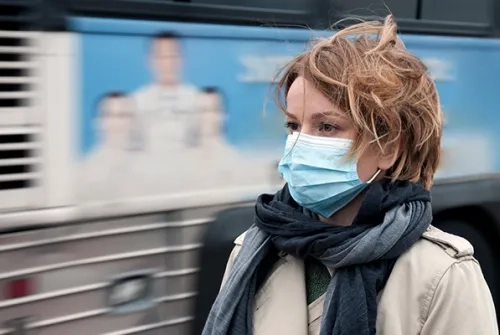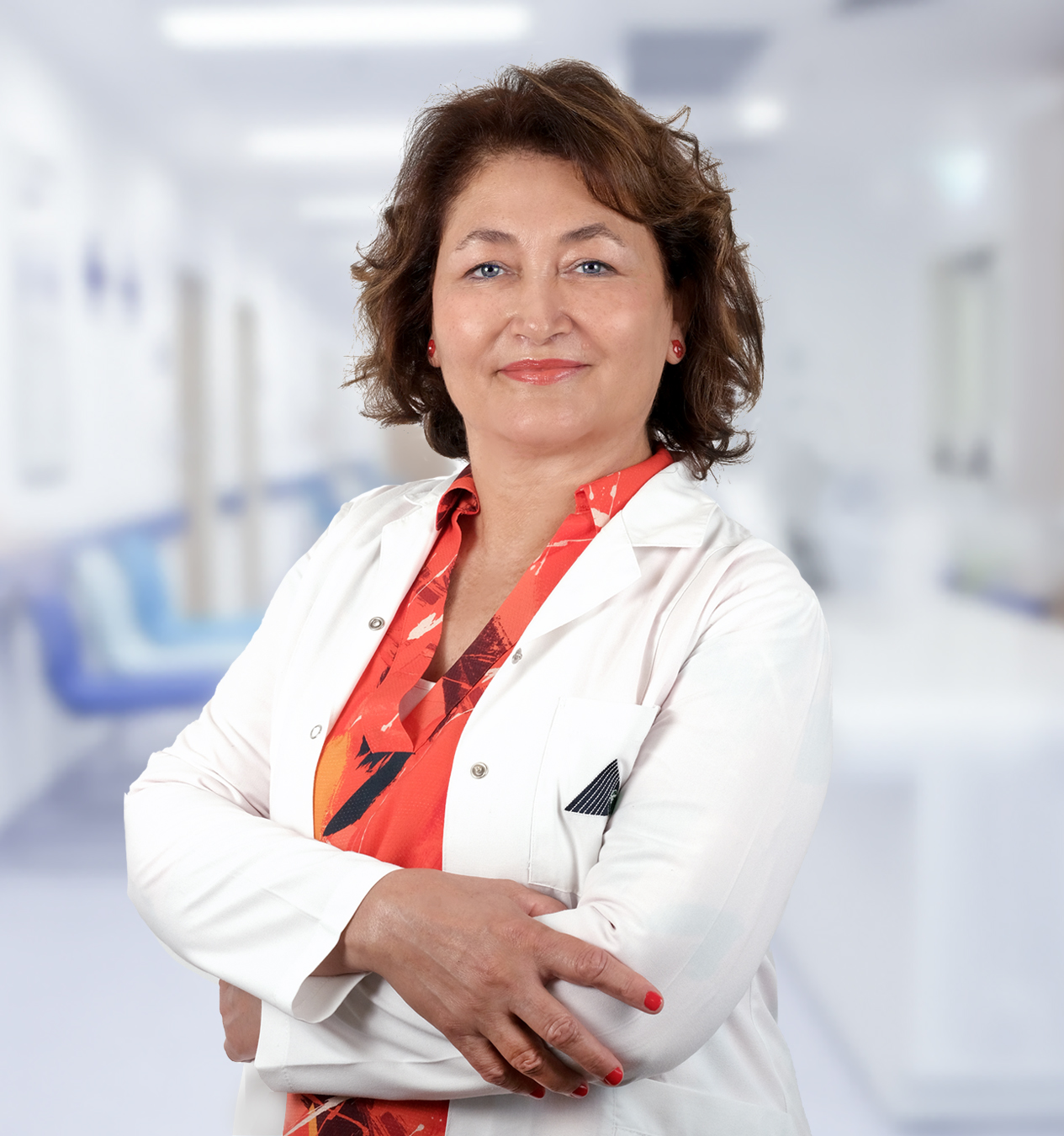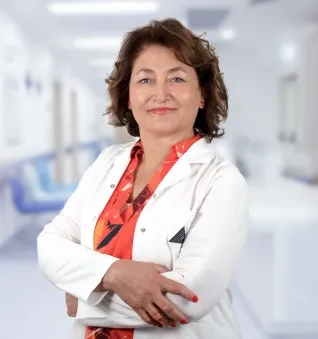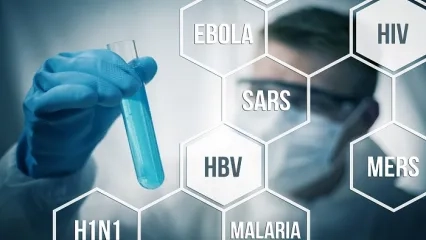What Precautions Should Be Taken Against the Cold Epidemic?
The phrase we hear frequently around us lately is "everyone is sick". Infectious Diseases and Clinical Microbiology Specialist Prof. Dr. Meral SÖNMEZOĞLU said that there is a very high concentration of patients in hospital emergencies, infection, chest diseases and ear, nose and throat outpatient clinics. Dr. Meral Sönmezoğlu said that hospitalizations have also increased significantly, and intensive care units have begun to be filled with lung infections and complications of flu and similar diseases. Defining this situation as a "cold epidemic", Prof. Dr. Sönmezoğlu gave information about the precautions to be taken.
Yeditepe University Hospitals Infectious Diseases Department. and Clinical Microbiology Specialist said that while the effects of the Covid-19 epidemic, which started in 2020 and did not slow down until 2023, are just beginning to disappear, as of November 2023, there are serious respiratory tract infections in our country but also in most European countries and North American countries and she added ‘’this epidemic was defined as a "tripledemic", that is, a triple virus epidemic’’
‘’It has been given rise to diseases which our immune system to forget about the viruses’’
Our expert said that although it is a respiratory tract infection, it is not a single virus like Covid-19, but many viruses, sometimes together, often one after the other, and explained the reason for this situation as follows:
During the 2020 Covid epidemic and in the 2022 and 2023 season, the influenza that we are used to seeing every winter was not seen. Because for 3 years, people stayed closed in their homes and wore masks when they went out. Therefore, people's immunity against these viruses has dropped significantly. This year, the influenza epidemic that we are used to seeing every year has resurfaced. Because people have started to come together, the importance of protection has decreased. Therefore, viruses that our immune system has forgotten spread quickly and easily.”
Our expert said that there is a very serious backlog of cases, especially in Istanbul and surrounding provinces, and added: “There is a very high backlog of patients in hospital emergencies, infections, chest diseases, ear,nose and throat outpatient clinics. Queues began to form in the emergency room. Hospitalizations have increased dramatically. In fact, intensive care units began to be filled with lung infections and complications of flu and similar diseases.
Therefore, there is a very serious backlog of cases.” she said.
“The Vaccine is Not Protective Against the New Variant of Omicron!”
Our expert said that Covid 19 maintains its place among these viruses, such as the common cold, and that 20 percent of the cases seen are a new variant, which is a subgroup of the Omicron variant. In fact, our expert pointed out that this will be heard more frequently and said, “It is seen in everyone, even those who have been vaccinated or have had Covid, because their immunity is weak against it. Everyone who says they have never had it and have always been locked up in their homes and never caught it for 3 years is currently suffering from Covid. "I can even say that we will hear it more often."
Viruses Began to Mix with Each Other
Infectious Diseases and Clinical Microbiology Specialist said that three viruses were mixed together, including the forgotten Influenza A (flu) and the RSV virus that disappeared during the pandemic period. “In previous years, RSV always caused an epidemic, but it ended around November and December. While that was over, influenza would begin. Now these 3 viruses have started to mix with each other. That's why people say that their complaints of runny nose, cough and malaise start again just when they are about to go away. In other words, he is talking about an endless infection and related complaints. In fact, the reason for this situation is that viruses act one after the other. "This picture of epidemic proportions is seen with decreased immunity."
Caution Those in the Risky Group!
Infectious Diseases and Clinical Microbiology Specialist pointed out that this problem affects people from all segments of society and in all age groups, but that there are especially risky groups that have a more severe course, requiring hospitalization and even resulting in loss of life.Especially that the chidren under age 5 and the adults over 65 years have a more severe disease. In addition, we define people over the age of 70 and those who use drugs that suppress the immune system as risky groups, and we recommend that these people definitely go to the hospital.”
Are RSV, Influenza and Covid Symptoms Similar?
Our expert said that it could not be distinguished clinically whether it was RSV, influenza or Covid during the first examination, and explained the symptoms that were similar in all of them:
“In all cases, fever, malaise, body aches, backaches, sore throat and cough are observed. The cough is dry for a very long time, but then it can turn into phlegm and, unlike the infections we are used to, it becomes a dry cough that lasts longer. “Patients begin to complain of chest pain, rib pain and back pain.”
Even though the symptoms of the diseases are the same, the treatments are different!
Infectious Diseases and Clinical Microbiology Specialist said that although the symptoms are different, different treatment protocols are applied in infections and therefore people in the risk group must be treated according to the diagnosis. “There are effective drugs that we use when diagnosed for both Covid and influenza. RSV can cause pneumonia and even loss of life in children, especially those under the age of one. The RSV virus lies at the root of childhood asthma. Therefore, we make a diagnosis and organize a treatment accordingly. Therefore, if children or elderly people have a severe infection, it is very important that they apply to the hospital, be diagnosed and receive appropriate treatment. Because this way, it can recover in a short time and prevent them from infecting others.”
Masks Should Be Weared and Hygiene Precautions Should Be Taken in Closed Areas
Underlining that it is necessary to take some precautions to avoid being affected by this situation, the Infectious Diseases and Clinical Microbiology Specialist explained the following:
“First of all, we should focus our attention on masks and hygiene measures. It is especially useful to wear a mask in public transportation such as buses, metro, metrobuses, elevators and in more crowded places. Because even people with mild symptoms can infect anyone within a few meters. Even though people are tired of using masks, I definitely recommend using a mask if they will be in a closed area in close-range. We have returned to practice in our hospitals. There is no point in using a mask if there is a distance of more than one meter outdoors. Besides, washing hands is very important. Because we risk catching the virus from everywhere we touch. Therefore, the same importance should be given to hand hygiene. Another important issue is that in this winter season, shaking hands may be possible, but hugging and kissing should not be done, especially in risk groups.”
About
Faculty and Year of Graduation:
Medical Faculty of Ankara University, 1984
”
See Also
- Don't Be Late Fighting Against Diseases
- Antibiotics Kill Beneficial Bacteria, Not Viruses
- What is Hepatitis? What are the Symptoms and Treatment Methods?
- Symptoms and Treatment of Tick Bites
- Summer Infections
- Precautions Must Be Taken Against Loss of Life Due To Infection in Thalassemia
- Information on H1N1 (Swine Flu)
- Summer is Coming... Beware of food poisoning!
- Our Taboos Affect the Increase in the Number of HIV-Positive Cases in Turkey
- Strep A Symptoms and Treatment
- Do Not Put a Cigarette Butt or Pour Olive Oil or Liquid Soap on the Tick
- Reheat the Food You Cooked Only Once!
- HIV Can Be Hidden for 10 Years without Any Symptoms!
- 290 Million People Live Without Knowing They Have Hepatitis
- Things to Consider When Touching Meat at Eid
- What Is Anthrax Disease?
- The Way to Fight AIDS is to Raise Awareness First
- Still Not Too Late For Flu Vaccine
- What is Rhinovirus?
- Fighting with Thalassemia: Meral Yılmaz
- Thalassemia Spreads from the Mediterranean to the Whole of Europe with Migration!
- Early Treatment of Crimean Congo Hemorrhagic Fever is Vital
- Approximately 3 Million Patients Need Blood Transfusions Every Year in Turkey
- When to Get the Flu Vaccine
- Antibiotics Account For 14% of Prescription Costs
- West Nile Virus Replaces Malaria
- It Is Necessary to Try to Be Healthy in order to Be Protected
- A New Flu Outbreak is Expected Every 10 Years
- 63% of Vector-Borne Diseases are Caused by Lyme Disease
- Experts Warn About Flu Risk
- Mosquito Infection Risk
- Why aren’t Antibiotics Working Any More?
- The World Raises an “Alarm” on Antibiotic Resistance!
- What is COVID-19?
- The Mask Requirement was Removed and the Importance of Social Distance Increased!
- How to Prevent COVID-19 in School-Going Children
- WHO (World Health Organization) Warns for Antibiotic Resistance!
- Who Is Threatened by Monkeypox?
- Ways to Prevent Coronavirus
- Swine Flu / H1N1
- Life Returns to Normal with Caution
- What is Monkeypox Virus? What Are the Symptoms of the Monkeypox Virus?
- What is Lyme Disease?
- How to Tell if You Have a Mild Coronavirus?
- Pay Attention to These Rules for COVID-19
- Hand Sanitizer Usage Guide
- The Priority Rule for the Protection from Summer Infections is Hygiene
Alo Yeditepe





